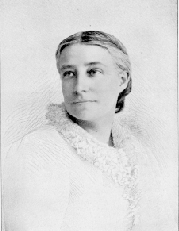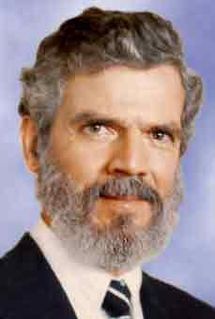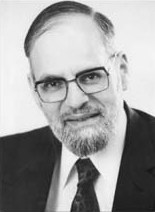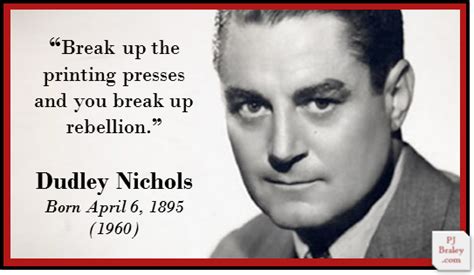Top 1200 Moral Absolutism Quotes & Sayings - Page 7
Explore popular Moral Absolutism quotes.
Last updated on November 15, 2024.
... life is moral responsibility. Life is several other things, we do not deny. It is beauty, it is joy, it is tragedy, it is comedy, it is psychical and physical pleasure, it is the interplay of a thousand rude or delicate motions and emotions, it is the grimmest and the merriest motley of phantasmagoria that could appeal to the gravest or the maddest brush ever put to palette; but it is steadily and sturdily and always moral responsibility.
Gratitude is not a spiritual or moral dessert which we may take or push away according to the whims of the moment, and in either case without material consequences. Gratitude is the very bread and meat of spiritual and moral health, individually and collectively. What was the seed of disintegration that corrupted the heart of the ancient world beyond the point of divine remedy...? What was it but ingratitude?
The social intuitionist model offers an explanation of why moral and political arguments are so frustrating: because moral reasons are the tail wagged by the intuitive dog. A dog’s tail wags to communicate. You can’t make a dog happy by forcibly wagging its tail. And you can’t change people’s minds by utterly refuting their arguments.
To try to reform all the power structures at once would leave us with no power structure to use in our project. In any case, we will be able to see that absolute moral renewal could be attempted only by an absolute power and that a tyrannous force such as this must destroy the whole moral life of man, not renew it.
Has Bill Clinton inspired idealism in the young, as he himself was inspired by John F. Kennedy? Or has he actually reduced their idealism? Surely part of the answer lies in Clinton's personal moral lapse with Monica Lewinsky. But more important was his sin of omission - his failure to embrace a moral cause beyond popularity.
It should be apparent that the belief in objectivity in journalism, as in other professions, is not just a claim about what kind of knowledge is reliable. It is also a moral philosophy, a declaration of what kind of thinking one should engage in, in making moral decisions. It is, moreover, a political commitment, for it provides a guide to what groups one should acknowledge as relevant audiences for judging one's own thoughts and acts.
Conscience is the most dangerous thing you possess. If you wake it up, it may destroy you. To live a life of total moral rigor is not necessarily the way to go. It's the path for very few people. Most people need to come up with some kind of middle ground that satisfies their practical, moral, and philosophical esthetic needs.
All voting is a sort of gaming, like checkers or backgammon, with a slight moral tinge to it, a playing with right and wrong, with moral questions; and betting naturally accompanies it. The character of the voters is not staked. I cast my vote, perchance, as I think right; but I am not vitally concerned that right should prevail. I am willing to leave it to the majority.
The Consequentialist trinity is typically regarded in this way: Bentham is crude, Mill's writings are full of howlers and inconsistencies, and Sidgwick was too smart to fully embrace Consequentialism. All of these great traditions in moral philosophy express strands of our moral consciousness and they should all be treated as research programs rather than as fully determinate views that can be leveled by a counterexample or by a clever argument.
Science is a magnificent force, but it is not a teacher of morals. It can perfect machinery, but it adds no moral restraints to protect society from the misuse of the machine. It can also build gigantic intellectual ships, but it constructs no moral rudders for the control of storm tossed human vessel. It not only fails to supply the spiritual element needed but some of its unproven hypotheses rob the ship of its compass and thus endangers its cargo.
We have the - the longest, friendliest border, you know, for the - for the longest time in the history - in recorded history, really, with Canada. And they get to sit on their moral perch, you know, take the moral high ground, say, oh, United States, shame on you about Iraq. They make us look bad internationally. And it's really not fair.
I declare that this government is no longer a constitutional and moral form of government. I will deal with it, and I will obey its laws, and I will support it when it is defending our country from foreign and domestic enemies. I will vote in its elections and participate in its political debates. But I will never accept it. I aim at a restoration of constitutional and moral order.
Our knowledge and our ability to handle our problems progress through the open conflict of ideas, through the tests of phenomenological adequacy, inner consistency, and practical-moral consequences. Reason may err, but it can be moral. If we must err, let it be on the side of our creativity, our freedom, our betterment.
And the moral of the story is that you don't remember what happened. What you remember becomes what happened. And the second moral of the story, if a story can have multiple morals, is that Dumpers are not inherently worse than Dumpees - breaking up isn't something that gets done to you; it's something that happens with you.
Why does everyone take for granted that we don't learn to grow arms, but rather, are designed to grow arms? Similarly, we should conclude that in the case of the development of moral systems; there's a biological endowment which in effect requires us to develop a system of moral judgment and a theory of justice, if you like, that in fact has detailed applicability over an enormous range.
There is seemingly no biological benefit to acting with conscience; if there were, only moral individuals would survive and procreate. Sadly, we know that's not true. The benefit of conscience is that you won't suffer guilt (private) or shame (public), and that by your own self-imposed definition, you are a moral human, a special kind of animal who takes unique pride in elevating him/herself above the termites.
In times of uncertainty, we tend to move away from deterministic world views. And when we try to find moral footing for our actions, we compare ourselves to the foil of all foils, the Nazi period. It's a quest for moral certainty by saying, "Even if we're not doing great these days, at least we're not the Third Reich." Which can be consoling or alarmist. There's always a present-day agenda behind it.
I think we're already getting to a stage where the basic artificial intelligences are discovering moral systems. I think, in many ways, moral systems are simply things that we have programmed into ourselves, either through childhood or just through genetic, ingrained ideas. So the same thing applies when you talk about machines.
Moral improvement (or perfecting) require an evolution leading to a higher consciousness, which is the true torch of life; it is what we have failed too much to appreciate, and that which would be fatal to fail to appreciate any longer ("pluslongtemps", Fr.); For if we do not take it upon ourselves to remedy in time to the moral colapse (or bankruptcy) that already threaten, the whole civilisation will risks to disappear.
One reason for the decline in moral values is that the world has invented a new, constantly changing and undependable standard of moral conduct referred to as "situational ethics." Now, individuals define good and evil as being adjustable according to each situation; this is in direct contrast to the proclaimed God-given absolute standard: "Thou shalt not!"-as in "Thou shalt not steal".
The fact that a belief has a good moral effect upon a man is no evidence whatsoever in favor of its truth. I'm not contending in a dogmatic way that there is not a God. What I'm contending is that we don't know that there is. I don't like the word "absolute." I don't think there is anything absolute whatever. The moral law, for example, is always changing. At one period in the development of the human race, almost everybody thought cannibalism was a duty.
The phenomenon of economic ignorance is so widespread, and its consequences so frightening, that the objective of reducing that ignorance becomes a goal invested with independent moral worth. But the economic education needed to reduce such ignorance must be based on austere, objective, scientific content—with no ideological or moral content of its own.
How much atonement is enough? The bombing must be allowed as at least part-payment: those of our young people who are concerned about the moral problem posed by the Allied air offensive should at least consider the moral problem that would have been posed if the German civilian population had not suffered at all.
What does this word holiness really mean? Is it a negative kind of piety from which so many people have shied away? No, of course not! Holiness in the Bible means moral wholeness-- a positive quality which actually includes kindness, mercy, purity, moral blamelessness and godliness. It is always to be thought of in a positive, white intensity of degree.
Prayer is often a temptation to bank on a miracle of God instead of on a moral issue, i.e., it is much easier to ask God to do my work than it is to do it myself. Until we are disciplined properly, we will always be inclined to bank on God's miracles and refuse to do the moral thing ourselves. It is our job, and it will never be done unless we do it.
There is absolute truth in anarchism and it is to be seen in its attitude to the sovereignty of the state and to every form of state absolutism. [...] The religious truth of anarchism consists in this, that power over man is bound up with sin and evil, that a state of perfection is a state where there is no power of man over man, that is to say, anarchy. The Kingdom of God is freedom and the absence of such power... the Kingdom of God is anarchy.
What the world needs today is a definite, spiritual mobilization of the nations who believe in God against this tide of Red agnosticism. It needs a moral mobilization against the hideous ideas of the police state and human slavery. I suggest that the United Nations should be reorganized without the Communist nations in it. It is a proposal based solely upon moral, spiritual and defense foundations. It is a proposal to redeem the concept of the United Nations to the high purpose for which it was created. It is a proposal for moral and spiritual cooperation of God-fearing free nations. And in rejecting an atheistic other world, I am confident that the Almighty God will be with us.
Hence the sterile, uninspiring futility of a great many theoretical discussions of ethics, and the resentment which many people feel towards such discussions: moral principles remain in their minds as floating abstractions, offering them a goal they cannot grasp and demanding that they reshape their souls in its image, thus leaving them with a burden of undefinable moral guilt.
Many people have written about the economic meaning of globalization; in One World Peter Singer explains its moral meaning. His position is carefully developed, his tone is moderate, but his conclusions are radical and profound. No political theorist or moral philosopher, no public official or political activist, can afford to ignore his arguments.
every issue that we deal with in this country has a moral component to it. And so, to divorce a moral component to the debt burden we're leaving the next generation, the tax structure to how we spend our money in Washington, and how we - you know, how we value human life - I mean, all of those things, to me interrelate. They're not - they're not separate issues.
My point is that when you look at a rabbit and can see only a pest, or vermin, or a meal, or a commodity, or a laboratory subject, you aren't seeing the rabbit anymore. You are seeing only yourself and the schemes and appetites we bring to the world-seeing, come to think of it, like an animal instead of as a moral being with moral vision.
Atheism ... in its philosophic aspect refuses allegiance not merely to a definite concept of God, but it refuses all servitude to the God idea, and opposes the theistic principle as such. Gods in their individual function are not half as pernicious as the principle of theism which represents the belief in a supernatural, or even omnipotent, power to rule the earth and man upon it. It is the absolutism of theism, its pernicious influence upon humanity, its paralyzing effect upon thought and action, which Atheism is fighting with all its power.
The uniting of Orthodoxy with state absolutism came about on the soil of a non-belief in the Divineness of the earth, in the earthly future of mankind; Orthodoxy gave away the earth into the hands of the state because of its own non-belief in man and mankind, because of its nihilistic attitude towards the world. Orthodoxy does not believe in the religious ordering of human life upon the earth, and it compensates for its own hopeless pessimism by a call for the forceful ordering of it by state authority.
Moral theory develops from the divine command theory of medieval Christian philosophy, mixed up with a bit of ancient pagan virtue theory, to the purely secular moral sentiment and interpersonal reaction theories of Smith and Hume, to Kant's attempt to restore command theory but with something supersensible in the individual rather than God as the source of authority.
Above all, do not give up your moral and political autonomy by accepting in somebody else's terms the illiberal practicality of the bureaucratic ethos or the liberal practicality of the moral scatter. Know that many personal troubles cannot be solved merely as troubles, but must be understood in terms of public issues and in terms of the problems of history making.
In the spiritual domain, criticism is love turned sour. In a wholesome spiritual life there is no room for criticism. The critical faculty is an intellectual one, not a moral one. If criticism becomes a habit it will destroy the moral energy of the life and paralyse spiritual force. The only person who can criticise human beings is the Holy Spirit.
Jesus of Nazareth could have chosen simply to express Himself in moral precepts; but like a great poet He chose the form of the parable, wonderful short stories that entertained and clothed the moral precept in an eternal form. It is not sufficient to catch man's mind, you must also catch the imaginative faculties of his mind.
Every day we make our way through a moral forest, along pathways ever branching. Often we get lost. When the array of paths before us is so perplexing that we can't make a choice, or won't, we can hope that we will be given a sign to guide us. A reliance on signs, however, can lead to the evasion of all moral obligations, and thus earn a terrible judgment.
Whether moral and social phenomena are really exceptions to the general certainty and uniformity of the course of nature; and how far the methods, by which so many of the laws of the physical world have been numbered among truths irrevocably acquired and universally assented to, can be made instrumental to the gradual formation of a similar body of received doctrine in moral and political science.
The bourgeoisie, which far surpasses the proletariat in the completeness and irreconcilibility of its class consciousness, is vitally interested in imposing its moral philosophy upon the exploited masses. It is exactly for this purpose that the concrete norms of the bourgeois catechism are concealed under moral abstractions...The appeal to abstract norms is not a disinterested philosophic mistake but a necessary element in the mechanics of class deception.
I am among those who believe that our Western civilization is on its way to perishing. It has many commendable qualities, most of which it has borrowed from the Christian ethic, but it lacks the element of moral wisdom that would give it permanence. Future historians will record that we of the twentieth century had intelligence enough to create a great civilization but not the moral wisdom to preserve it.
The moral government of God is a movement in a line onwards towards some grand consummation, in which the principles, indeed, are ever the same, but the developments are always new - in which, therefore, no experience of the past can indicate with certainty what new openings of truth, what hew manifestations of goodness, what new phases of the moral heaven may appear.
The strength of an individual is not in his extreme freedom and libertine lifestyle, but in the stalwartness of his character and his moral vigor. The society is made of individuals. What is true for an individual is also true for the society. A society that is not founded on moral values is doomed to fall.




















































